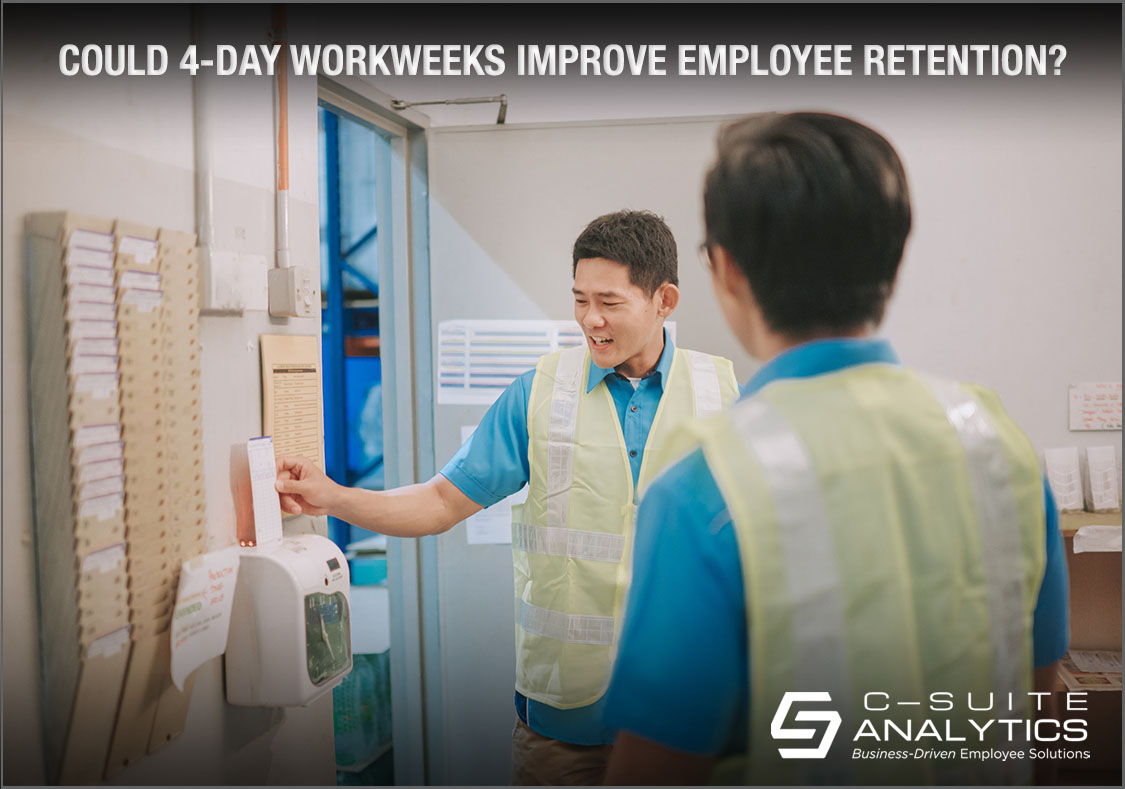According to the National Education Association, a full 600,000 teachers have already left teaching since January 2020, and a recent NEA poll indicated 55% more will quit prematurely. So, teachers are fast becoming a very talented recruiting pool.
Employee Retention Science Always Wins

There is an increasing trend in our country and around our earth regarding what I will call the “credibility of science”. That subject is top-of-mind…and top-of-news…today as we hear reports about who will take the upcoming vaccine and who will not. The same is true regarding who believes in people-created climate change, or the effectiveness of wearing masks, or any other number of “alternative facts” topics. We’ve just watched hurricane after hurricane batter our gulf coast. Something seems to be different here.
This brings to mind an experience I had at the most recent onsite SHRM annual conference, in Las Vegas in 2019. Those who have attended a SHRM annual conference know the vendor expo halls is three football fields long…so bring comfy shoes. One day there I went on a reconnaissance mission to learn which of the major vendors knew the science behind employee turnover. So I chose the two largest international consulting booths for my search.
Those booths seem more like mini amusement parks with all of the technology that is showcased, music blaring, the humorous presenters behind the mikes, and the continuous giveaways of keychains and other treasures we likely will never look at again. Each booth’s signage boasted about improving…well…everything. Lower turnover, higher engagement, improved attendance, higher morale…and of course better training, better benefits, and of course some way to provide better pay.
So I presented myself as CHRO of a major organization with high turnover and asked how could they help me. In each booth I was then referred to a more senior rep who invited me to see his computer screen. Then the first senior booth person said this, and I recall his words and voice precisely:
“Everyone knows the main reason people quit jobs is due to lack of DEVELOPMENT so let me show you all of the online courses we offer. Come on over and see my screen.”
Then after going through the same refer-me-up process at the second booth, that booth rep said nearly the identical words except he substituted “PAY” for “DEVELOPMENT”.
Some of our readers know that I proudly hold a “fake PhD in turnover”. My fake PhD sits atop my legitimate academic training as a therapist. I earned my fake PhD prior to writing my first book, when intimidated by the book-writing challenge I asked a professor who had academic interest in employee retention to tutor me…and over many months he consistently sent me academic journal articles and dissertations that contained controlled-study findings on what really caused employees to stay and conversely what caused them to leave. These were not “best practices”, these were scientific facts. And our retention solutions at C-Suite Analytics are built on those facts.
So when playing my “test the booth” game, one could say I cheated. On one side was me, holding onto the correct answer as to why employees leave like a gambler with four aces, while on the other side was a salesperson trying to make a buck. The fight wasn’t fair because science was on my side.
And that science tells us the #1 reason employees stay or leave, or engage or disengage, is how much they trust their immediate supervisors. Employees leave for other reasons for sure, but as we sometimes say to our clients, “If you have one hammer and one nail, this is the nail you want to hit”.
I could rattle off various research studies, and I detail 25 of them in my book, “HR’s Greatest Challenge”. Email me if you want a copy of this list. But the more important point is this:
Everything you do to improve turnover or engagement that is not about building leaders’ trust doesn’t matter much.
As just one example, Gallup tells us employee engagement hasn’t changed much in 20 years, while Deloitte says U.S. companies spend $1.53 billion each year to “improve it”. How much of that $1.53 billion goes to recognition events, company clocks, orientation, tuition reimbursement, pet insurance…or anything that is not about your leaders building trust?
The answer is not to train your leaders on how to build trust, giving them a list like “always tell the truth” and “keep confidential information confidential”. Corporate trainers learned long ago that supervisory training that calls for passive implementation…”the next time this happens, do this”…leads to failure, whereas giving leaders something to proactively do leads to success.
So this is just another way of describing why Stay Interviews work. When I wrote “The Power of Stay Interviews” in 2012, still SHRM’s top-selling book, I did so to introduce a proactive way leaders could connect with their teams one-on-one to build trust. This is the reason why our clients consistently cut turnover by 30% and more. Email me if you’d like to talk with some of them and they will tell you their own stories of how Stay Interviews have improved retention, engagement, and productivity.
And besides, what matters more at work for each of us heading into a new year than having a boss we trust? And teammates all around who trust us back?
We Cut Turnover 30% and More! Please email your comments to me at DFinnegan@C-SuiteAnalytics.com. You are also welcome to forward this blog to anyone you believe would find it helpful.



